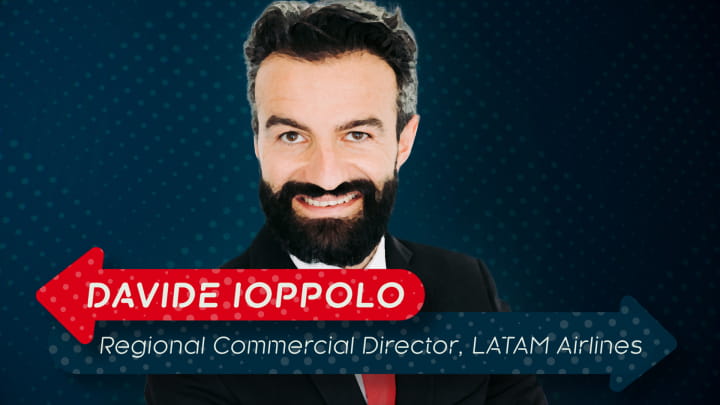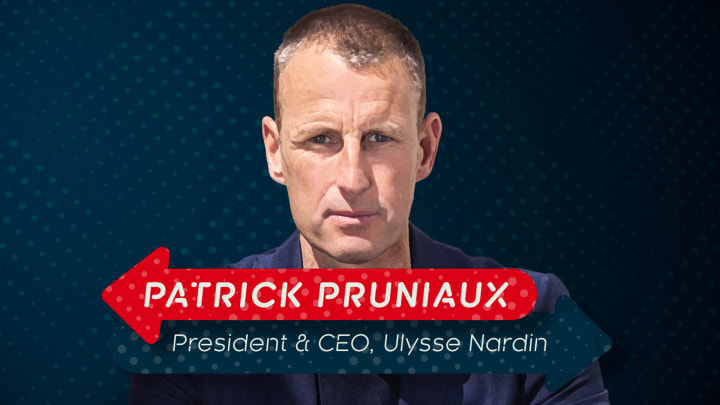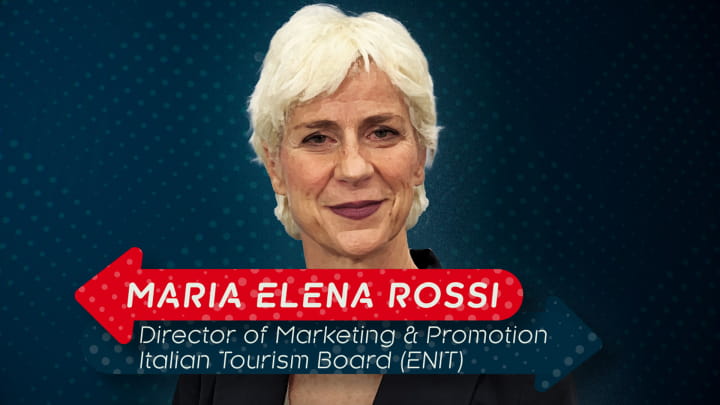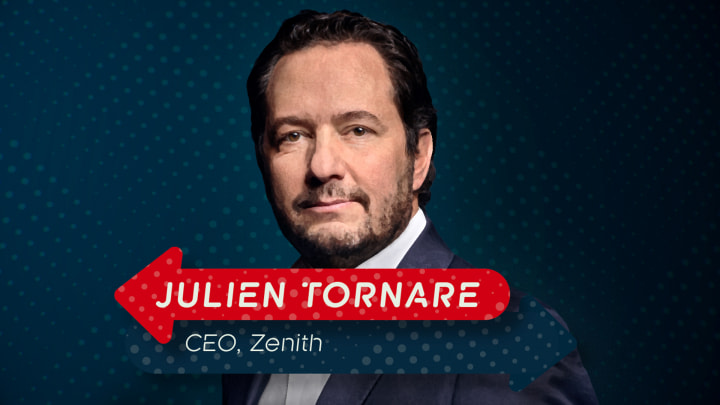
CEO Edit with Tanya Beckett is back at World Travel Market 2024 to tap into the latest trends and challenges in travel, including AI reforming the traveller experience, and how destinations are dealing with over-tourism.
LATEST CEOs – WORLD TRAVEL MARKET 2024
A.I. improving tourist experiences
AI is increasingly being used to improve travellers’ experiences, helping with everything from customer service to travel planning. Boon Sian Chai, Managing Director & Vice President of International Markets for Trip.com Group, tells Tanya Beckett that while the use of AI will continue to grow and become more personalised, it will never replace personal connections and experiences.
Improving connectivity is helping Kenya’s tourism sector grow by attracting more African, Asian, and Pacific visitors. June Chepkemei, CEO of Kenya Tourism Board, explains to Tanya Beckett how investments in infrastructure is paying off and how tourism is promoting sustainability in the country.
Cambodia is promoting itself as the last “hidden gem” of Southeast Asia which is undergoing a cultural renaissance. The country has recently launched a new body -Cambodia Tourism – and Tanya Beckett talks to its CEO Vichit Ith. He explains how the country is promoting community based and sustainable tourism.
Changing lives and promoting peace
Tourism is helping transform former conflict areas in Colombia, by providing jobs and security. Juan Manrique Camargo, Vice-Minister of Tourism, explains the importance of tourism to peace and his plans for expanding the industry. .
Diversification & collaboration key to sustainability
Montenegro is planning ahead to prevent over-tourism which is a problem in some neighbouring countries. Minister of Tourism Simonida Kordić explains to Tanya Beckett how communication, collaboration with other Balkan nations, and diversification are being utilised to attract people to the country’s mountains as well as the beaches.
Peru is investing in its women to grow tourism. In some parts of the country, including the Amazon, tourism is carried out only by women. Desilú León, Peru’s Minister of Foreign Affairs and Tourism, tells Tanya Beckett how the country is building a resilient sector and dealing with climate change challenges.
Indonesia sees regenerative tourism as a tool to education visitors and communities. Ibu Made Marthini, the country’s Deputy Minister of Tourism, outlines how they are developing the sector in a sustainable way, including promoting visits to villages.
Making the Balkans more attractive
Bulgaria is pushing a vision for regional cooperation to market the Balkans as an attractive destination, with visitors easily travelling between neighbouring states. Bulgaria’s Minister of Tourism Evtim Miloshev, who is behind the plan, explains the challenges to Tanya Beckett.
Czech tourism is looking to expand its use of AI in its apps, website and portals to improve the user experience, but providing the exact and targeted information needed. František Reismüller, CEO Czechia Tourism Board, tells Tanya Beckett that national tourism organisations are often lagging behind when it comes to embracing the technology.
Coexistence key to tourism success
Mallorca is focusing on coexistence, education, and attracting visitors in the low season to try to solve the problem of over-crowding. Susanna Sciacovelli, the Director of Tourism in Mallorca tells Tanya Beckett why her job has changed from encouraging more people to the island to raising awareness on how to preserve it.
Technology tackling over-tourism
Japan is using technology, including AI, to tackle problems of over-crowding at popular tourist sites. Technology is also helping the country address job shortages. Tanya Beckett talks to Koji Takahashi, Executive Senior Vice President, of the Japan National Tourism Organization, to find out how the country is reshaping its tourism sector.
Cultural tourism key to growth
Guatemala is promoting community tourism to tackle poverty and boost sustainability efforts. Tourists are being encouraged to visit local villages to learn from about culture, nature, history and different ways of life. Tanya Beckett talks to Anna Valdez, Head of Promotion & Advertising, Tourism Board of Guatemala.
Previously on CEO Edit
2024
Adapting to changing consumer needs
“We are very much invested in finding new markets to expand the tourism sector.” Chadatip Chutrakul, Chief Executive Officer of Thailand’s Siam Piwat Group, explains how her company is transforming the retail experience and it's plans to expand across Asia.
Balancing Act: tourism and sustainability
In addition to finding innovative ways to attract new tourists to the island nation, Fathmath Thaufeeq, CEO and MD of Visit Maldives, explains how her country is balancing the need to expand with sustainability. What role do locals on smaller islands play?
2023
Investment in infrastructure is shaping Qatar’s tourism ambitions
Qatar attracted world attention when it hosted the 2022 FIFA World Cup, but has that led to a boom in tourism? The Chairman of Qatar Tourism, Saad Bin Ali Al Kharji, explains how investment in infrastructure for the event is helping shape tourism’s growth and ambitions, and why regional competition is a “good thing”.
Watch brands like Montblanc are producing smart watches, but they still believe craftsmanship and mechanical watches are here to stay. How important is going digital to their future?
Stretching the notion of seasonality
Bermuda’s Tourism Authority is focused on engaging local communities and balancing growth with sustainability. CEO Tracy Berkeley explains how “stretching out the notion of seasonality” is part of that plan.
“We need to increase and improve our air access.” Tourism Minister Patricia de Lille tells CEO Edit why improving connectivity, especially across the continent, as well as increasing safety and security, are vital for growth in South Africa’s tourism industry.
Why is art so important to watchmaking? Hermès is drawing inspiration from its artists as well as its other collections.
Ambitious targets for green tourism
“We will see Sri Lanka positioning ourselves as one of the first fully green tourism destinations.” An ambitious target for a country’s tourism industry that is just rebounding after a few very tough years. The Minister of Tourism, Harin Fernando, explains how they plan to achieve it and why regional tourism is important for short-term growth.
Aiming to become the Tourism powerhouse of Asia.
The Philippines has the ambition of becoming the tourism powerhouse of Asia. Christina Frasco, Secretary of Tourism, explains how the country plans to achieve that and why education and working with the private sector are key.
Balancing environment and tourist numbers
A new tourist train will bring more visitors to some of Mexico’s popular sites, including its Mayan ruins in the state of Yucatán. Michelle Fridman, Tourism Minister of the state, tells CEO Edit how she plans to manage tourist numbers while preserving the environment and local culture.
How does a young watchmaker compete with established companies that have been operating for hundreds of years? HUBLOT is focusing on the innovative use of materials to set itself apart.
Making sustainability at the heart of their strategy.
“Sustainability is at the heart of our strategy.” That’s according to LATAM airlines, Latin America’s leading airline group. Davide Ioppolo, Regional Commercial Director, tells CEO Edit that ”it’s not easy to meet sustainable aviation fuel targets,’ but the company is committed.
“We originally focused on sustainability, but we soon realized that sustainability was no longer enough and we had to start focusing on regenerative development.” John Pagano, CEO of Red Sea Global, explains the shift in strategy and how his project is boosting job creation in Saudi Arabia.
Ulysse Nardin prides itself on its pioneering technologies and techniques – like making a watch with no dial, no hands and no crown. What‘s next for the watchmaker?
Balancing tourism growth with sustainability
“The time is fast approaching where we will have to cap the number of hotel constructions and the number of visitors that we can receive.” That’s the outlook for the Seychelles as it tried to balance tourism growth with sustainability. Minster for Foreign Affairs and Tourism, Seychelles, Sylvestre Radegonde explains why his country will never be a mass tourism destination..
While many watch brands are re-releasing and updating their vintage models, Jaeger-LeCoultre has been renovating some of its classic time-pieces, giving them a new lease of life. Why?
A.I. the next frontier of tourism.
Italy’s Tourism Board says A.I. is the next frontier in tourism. It will provide tourists with up-to-date information to avoid crowds and organize their visits. As well as embracing technology, Italy is promoting its villages as destinations and its transport system to improve sustainability. Tanya Beckett talks to Maria Elena Rossi, Director of Marketing & Promotion. Italian Tourism Board (ENIT)
Making sustainability a priority
What is the luxury watch industry doing to promote sustainability? As well as focusing on ethically sourced materials, Chopard is increasing its use of recycled steel.
Attracting the younger traveller
“Thailand’s tourism industry is bouncing back and authorities have plans in place to avoid overcrowding. Nithee Seeprae from the Tourism Authority of Thailand explains what’s being done and why there’s a focus on attracting younger visitors to the country.
Developing and including local communities
“It’s not only about numbers, it’s about finding this balance between quality and quantity, so what we do is really improve the livelihoods of local people.” That’s the vision for tourism growth in Azerbaijan, which has a strong focus on developing and including local communities. Tanya Beckett talks to Florian Sengstschmid, CEO Azerbaijan Tourism Board.
Popular tourist destinations like Croatia are trying to lure visitors to their countries off-season to transform their sectors into year-round offerings. They want to avoid overcrowding while promoting jobs and growth. Kristjan Staničić, General Director, Croatian National Tourist Board talks to Tanya Beckett.
Zenith, a 158-year-old watch brand, is positioning itself as a forward-thinking company by removing gender tags, moving online, and focusing on sustainability. So how is its CEO balancing the brand’s heritage with modernity?
Contact Us
EVENTS TEAM: RSVP.BBCGLOBAL@BBC.COM ADVERTISING SALES TEAM: INTERNATIONALSALES@BBC.COM

































